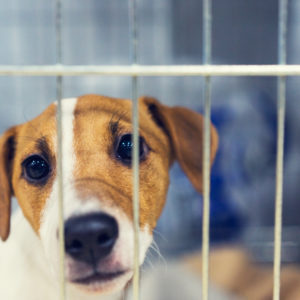Responsible dog breeding is under attack with efforts at the federal and state levels to limit or end breeding.
At the federal level, one proposal would prohibit the breeding of female dogs unless approved for breeding by a veterinarian, with no specific details on what the screening would involve or who would make these decisions. At the state and local level, no fewer than 80 measures seek to curtail skilled breeders who supply dogs as pets or to law enforcement as working dogs.
California leads the way in extreme measures that punish responsible breeders.
In Los Angeles, officials are proposing a sweeping moratorium on dog breeder permits with the fundamentally wrong-headed idea that this will alleviate the overcrowding at city animal shelters.
Responsible dog breeders who play by the rules and get required licenses are not generating overflow at animal shelters. Instead, responsible breeders raise healthy dogs and work to ensure that puppies are placed with appropriate owners, some of whom require specially bred service animals. They take dogs back if a home placement does not work out instead of sending them to a shelter where they are cared for at the taxpayers’ expense.
The overcrowding is a serious problem, with all six Los Angeles Animal Services shelters beyond capacity. The issues associated with the city’s shelter deserve serious attention and thoughtful solutions that address underlying issues, not just a Band-Aid.
But the root of the issue, as the city’s Department of Animal Services has acknowledged, is irresponsible breeders who already ignore city requirements for licensing and breeding. Such a moratorium would not affect them as they already flout the law. In fact, less availability of responsibly bred dogs is likely to create an incentive for even more irresponsible breeding.
The moratorium is a collective punishment measure, attacking all dog breeders, hurting only those who follow the rules and have been providing quality, well-bred pets to the community for many years, and hurting residents who wish to obtain a pet from them.
The proposal, pending a final vote by the City Council, could also potentially create a de facto mandatory spay-neuter policy for all dogs owned by residents. That’s because “intact licenses” — ones that allow an owner to keep a pet that is not spayed or neutered — are issued concurrently with breeding permits. If breeding permits are no longer issued, it’s unclear how the city will issue intact animal permits.
The city’s war on responsible breeders is evident in comments by Staycee Dains, the Animal Services Department’s general manager, who told a Los Angeles City Council committee in October that “breeding is not an activity that is supported by the city of L.A.”
The attack on responsible dog breeding in the Golden State extends from the city to state leaders in Sacramento. In one glaring example, California has a law forcing pet stores to sell only rescue or shelter dogs, preventing people from accessing dogs sourced from America’s highly regulated and professional breeders.
A better way to address overcrowding issues at shelters — wherever they are — is to crack down on irresponsible dog breeders. In addition, localities should require all animals in the shelter system to be checked for microchips so lost pets don’t languish there. Localities should also ensure low-cost spay and neuter funds are available to all who need them while offering tax credits or other programs to incentivize greater acceptance of pets in residential housing.
Responsible, law-abiding citizens who are breeders of show dogs, service or other working dogs are not at fault. Lawmakers nationwide should not penalize breeders who play by the rules and always put animal welfare first.

